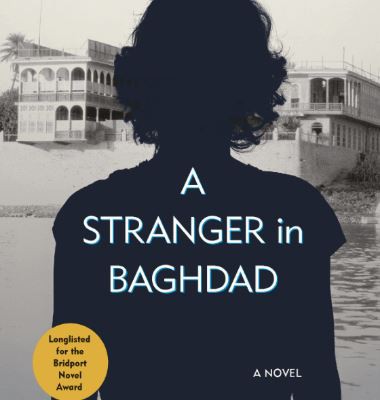Book review: A Stranger in Baghdad

Book Author(s) : Elizabeth Loudon
Published Date : May 2023
Publisher : Hoopoe Fiction
Paperback : 444 pages
ISBN-13 : 978-1649032850
An unexpected visit from former British diplomat and family acquaintance Duncan Claybourne to Iraqi-British psychiatrist Mona Haddad in 2003 sets the scene for Elizabeth Loudon’s novel, A Stranger in Baghdad (Hoopoe Fiction, 2023). The reader is plunged immediately into intrigue with the possibility of revelation, only to discover the many intricacies which bind all of the characters together, each a protagonist in their own right, and all against a backdrop of British colonialism and its aftermath in Iraq.
The book shifts back to 1937, when Mona’s mother, Diane, moves to Baghdad after marrying an Iraqi doctor, Ibrahim Haddad. British Diane is a misfit in both worlds: she challenges her own family’s stereotypical views through her marriage, while in Iraq she navigates her husband’s family and Iraqi society with the privileges she associates with being a British woman. Divergences in culture are expounded upon in the book, as Diane and Ibrahim’s family remain aloof, with the exception of Laila, her sister-in-law with whom she bonds, although their relationship is tested on several occasions throughout the story.
Through her contacts at the British Embassy, Diane becomes employed as a nanny to King Ghazi’s son, Faisal, creating further rifts with her husband’s family and heaping additional scrutiny on her. Claybourne, a diplomat whose presence in the story is very elusive, asks Diane to report to him from her position. She accepts the assignment, triggering a trail of secrecy in her relationship with Ibrahim, who remains suspicious of Claybourne. While the relationship between Diane and the diplomat harbours much cause for suspicion, it is the link to British colonialism and imperialism that runs strongly throughout this book, particularly when Ghazi dies and Iraqis suspect foul play. Diane becomes an untrustworthy protagonist in the eyes of Iraqis, and the family becomes the target of scrutiny and surveillance by Iraqi officials.
While Diane immerses herself in Iraqi culture and family life, this is mostly magnified in the sporadic interactions she has with her family in London. In Iraq, though, she veers towards her British identity and British interests, with both dominating defining moments in her later interactions with her husband and three children, whose different characters and allegiances create additional nuances and rifts. As the political backdrop starts taking centre stage in the novel, the focus shifts to Diane and Ibrahim’s family, each harbouring their own secrets and intertwining with the unfolding events. Mistrust becomes almost normalised; the family members’ different allegiances paint a picture of a family bound by blood ties yet so diverse that it is difficult to envisage in terms of social relationships.
Diane and Ibrahim’s daughter, Mona, is the one who can navigate both worlds. Her closeness to her father and pride in her Iraqi heritage creates something of an alliance between both. Her father trusts her with the burden he is forced to carry, ironically as a result of Mona’s own doing when she imparts the wrong medical advice during a phone call. Yet she is also very perceptive of her mother’s struggles, often critical, and has a close relationship with her youngest brother Ziad, whose prominence in the story is told through his abrupt disappearance and which resonates throughout, due to a mention in the book’s introduction. Yet although Ziad’s disappearance may seem at first to be central to the book, the mastery of this novel is that the author gives equal importance to all the intricacies that she writes. Nothing overshadows each character and their narratives, although through Diane and Claybourne, additional details revealed towards the end of the novel show the turbulence in Baghdad as seen and felt both through the eyes of Iraqis as well as the detached outsiders, for whom Iraq remained an experience lived through a privileged colonial lens.
Mona’s narrative is tightly interwoven with the book’s complexities. At times observer, at times participant, Mona is a link to several prominent characters, while carrying the burden not only of the family’s dysfunction, but also her own trauma, including being at the crossroads of British-Iraqi identity. While her mother Diane is capable of detachment, of fulfilling needs and duties with little involvement, Mona’s immersion in her own story and those close to her is an exercise in memory, its importance, and the inevitable scars it leaves on individuals for whom sentiment and accountability are on the same page.
https://www.middleeastmonitor.com/20230725-book-review-a-stranger-in-baghdad/
 TheAltWorld
TheAltWorld 
0 thoughts on “Book review: A Stranger in Baghdad”